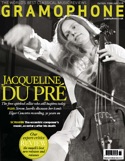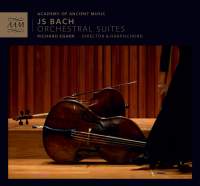Texte paru dans: / Appeared in: |
|
|
Outil de traduction (Très approximatif) |
|
|
Reviewer:
Rob
Can In a note appended to this exceptional version of the Suites – performed by single players at a lower pitch, by the way – the AAM’s Music Director comes clean by admitting that the current fad for ‘the faster [and more metronomically] played the better’ doesn’t appeal. Not for Richard Egarr the now popular principle that the last one up to the double bar-line is a sissy. Rather, he presents the Bach Suites as elevated chamber music, which is fine in my book, even though if you do happen to fancy a visit to the racecourse in this repertoire, the equally lean but more extrovert Reinhard Goebel with Music Antiqua of Cologne still serves a useful purpose. Interestingly the Speedy Gonzalez option didn’t start with the period performance brigade but in the early 1950s with Fritz Reiner and the RCA Victor Symphony (now on Pristine Audio), whose versions of the Suites include some real fireballs in the dance movements. What I like about Egarr is the way middle voices are liberated and integrated into the overall texture, while the fugal ouvertures breeze along without the dubious benefit of rocket fuel. Take the main body of the opening movement of the First Suite: busy, it’s true, but light years removed from the more aggressive manner of some of its more recent rivals. The oboes, bassoon and strings intertwine easily, the sensation resembling animated conversation. The Courante wears a gentle demeanour, the rushing figurations beneath the Forlane’s main melody beautifully woven. Converging lines are clear but relatively soft-grained; and in the Third Suite, after a vigorous and rousing Ouverture, the celebrated Air really sings, Egarr’s tasteful continuo aiding the bass-line in pursuit of maximum expressive subtlety. The sense of celebration extends to the Fourth Suite, where the timps are vividly captured and the limpid phrasing breathes easily. The Second and most intimate of the Suites benefits from superb solo playing, Rachel Brown never hogging the limelight, which is appropriate given that her wind-playing colleagues match her standards throughout. As to the sound, I was never aware of it until prompted to comment, which is as it should be. All in all, a feast of meaningfully understated musicianship. I loved it. |
|
|
|
|
|
Cliquez l'un ou l'autre
bouton pour découvrir bien d'autres critiques de CD |
|




